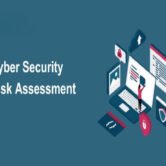
Establish the need for incident response planning in startup cybersecurity strategy.
Introduction
In the high-stakes world of startups, agility, innovation, and rapid scaling are often at the center of strategic priorities. Yet, in the race to build products and capture markets, cybersecurity can sometimes be overlooked—until a breach occurs. With cyber threats becoming more frequent and sophisticated, even early-stage startups are prime targets for attacks. This reality makes incident response planning a critical component of any effective cybersecurity strategy. By preparing for the worst before it happens, startups can minimize the impact of security incidents, protect their data and reputation, and recover faster. Incident response planning is not just a technical measure—it is a business imperative.
Preparing for the Inevitable
No organization is immune to cyber incidents. Whether it’s a phishing attack, data breach, ransomware, insider threat, or system misconfiguration, startups must accept that incidents are not a matter of if, but when. Unlike mature enterprises, startups often lack dedicated security teams, making them more vulnerable to prolonged disruptions. An incident response plan (IRP) equips the startup with a clear, predefined protocol for identifying, containing, and mitigating threats quickly. Without such a plan, even a small security issue can escalate into a crisis, causing irreversible damage to systems, customer trust, and business continuity.
Minimizing Downtime and Business Disruption
In the fast-paced startup environment, every minute counts. A single breach or system outage can halt operations, delay customer deliveries, or disrupt financial transactions. Incident response planning ensures that roles, responsibilities, and communication channels are defined in advance, enabling the team to act swiftly and decisively during a crisis. By outlining steps for containment, investigation, and recovery, the IRP minimizes downtime and ensures that key services can be restored quickly. This operational resilience is essential for maintaining momentum in competitive markets.
Protecting Customer Trust and Reputation
Startups often build their brands on transparency, innovation, and personalized experiences. A poorly managed security incident—especially one involving customer data—can undermine that trust and lead to customer attrition, negative publicity, or legal repercussions. An incident response plan includes communication strategies for informing affected users, partners, and stakeholders in a timely and responsible manner. Startups that handle incidents professionally demonstrate accountability and earn credibility, even in the face of adversity.
Supporting Regulatory Compliance and Legal Preparedness
Startups that collect or process personal data are subject to data protection regulations such as GDPR, CCPA, HIPAA, or industry-specific standards. These laws often require that organizations report breaches within specific timeframes and maintain records of their incident handling procedures. An IRP supports compliance by establishing documentation protocols, timelines for reporting, and procedures for forensic investigation. Failing to meet regulatory obligations can result in hefty fines and damage investor or partner confidence. Having a tested response plan reduces legal exposure and ensures that regulatory expectations are met.
Improving Team Coordination and Role Clarity
During a security incident, uncertainty and confusion can paralyze teams. An incident response plan provides clarity by defining team roles, escalation paths, and decision-making authority. From technical teams responsible for containment to communication leads handling public disclosures, everyone knows their responsibilities and how to execute them. This clarity reduces panic, improves coordination, and allows the startup to respond with confidence and control. Regularly rehearsed IRPs also improve team readiness and reduce human error during high-pressure situations.
Enabling Continuous Improvement in Security Posture
Every incident, whether major or minor, offers a learning opportunity. A robust incident response strategy includes a post-incident review phase where the team assesses what happened, how it was handled, and what can be improved. These insights are invaluable for strengthening policies, upgrading systems, and refining training programs. Startups that institutionalize this feedback loop become more resilient over time and better equipped to prevent similar events in the future.
Enhancing Investor and Partner Confidence
In a funding or partnership discussion, due diligence increasingly includes cybersecurity scrutiny. Startups with an established incident response plan are better positioned to demonstrate maturity, risk awareness, and preparedness. This reassures investors that the company has both the foresight and infrastructure to handle crises professionally. It also signals to potential partners and clients that the startup takes data security seriously, making it a more attractive and reliable collaborator.
Conclusion
Incident response planning is a crucial pillar of a startup’s cybersecurity strategy. It prepares the organization to act decisively during a cyber incident, reduces damage, preserves trust, and ensures compliance with regulatory mandates. In a digital environment where threats are constant and evolving, startups cannot afford to be reactive. By investing in a clear, tested, and scalable incident response plan, startups build the confidence and capacity to manage security events without losing focus on growth. In doing so, they protect not just their systems, but the very foundation of their brand and future success.
Hashtags
#IncidentResponse #Cybersecurity #StartupStrategy #CyberThreats #DataProtection #RiskManagement #BusinessContinuity #SecurityPlanning #IncidentManagement #CyberAwareness #StartupSecurity #DigitalSafety #ThreatResponse #CrisisManagement #ITSecurity #CyberResilience #SecurityFramework #TechStartups #ProtectYourBusiness #CyberDefense





